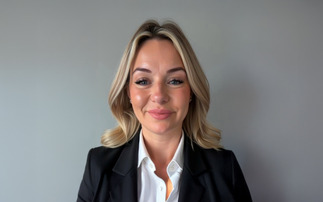When the UK went into lockdown on 23 March, our nation unknowingly entered a mental health crisis
There was a time in the not-so-distant past when the term ‘mental health' was often (wrongly) associated with severe psychological illnesses such as depression, bi-polar and schizophrenia.
For years, it has been a priority for campaigners, charities and, more recently, our industry to convince people, employers especially, that we all have mental health. Much like how we all have physical health, regardless of any ailments. This has allowed us to not only break down stigma, but also take steps to look after our workforce better and get the best out of people.
The group risk, employee benefits and workplace wellbeing space, equipped with research exploring buzz topics such as ‘productivity', ‘absenteeism' and ‘presenteeism' have helped hit home the negative impact of neglecting the emotional welfare of staff from a business perspective.
The emotional strains of the current situation is affecting us all, with or without a diagnosis.
According to research by Group Risk Development (GRiD) released today, over four fifths (81%) of employers believe it is good for business to look after the mental wellbeing of their workforce.
Last year, the term ‘occupational burnout' was classified as an official diagnosis by the World Health Organisation (WHO), while research by LifeSearch, for example, has explored the ‘coping mechanisms' used by as many as 24 million Brits to ‘self-medicate'.
Lockdown
With the groundwork laid and the conversation already changing around mental health, none of us expected to face the worst public health crisis of a generation. When the UK went into lockdown on 23 March, our nation unknowingly entered a mental health crisis of previously unseen proportions.
Nine weeks later, as someone acutely aware of the precarious nature of his own mental health - something I have spoken openly about on COVER to help tackle stigma - the need for day-to-day self-care is a daily reprieve that even I could not have imagined.
Within days of the lockdown, those with the right experience were on hand with wellbeing tips and guides to extreme remote working: establish routines, exercise daily, eat healthily and detox digitally. The need to social distance saw us cut ties with family members, parents took on home-schooling, while all the simple things we previously took for granted - using public transport, buying groceries, visiting local shops - were taken away in an instant. It wasn't long until we asked: do we have the tools to navigate this?
Anxiety is fear of the unknown and depression can loosely be described as a lack of hope for the future. No longer are these experiences or concepts constrained to ‘some people' (one in four, according to Mind). The emotional strains of the current situation are affecting us all, with or without a diagnosis. Hence, we all have mental health, so the responsibility now falls on the protection and health insurance industry to put its money where its mouth is.
Kindness
As we enter Mental Health Awareness Week, never before has it seemed so relevant. Carrying the theme of ‘kindness', it is more than just another opportunity for our industry to highlight the support gap and for service providers to shout about their offerings. It is about putting into action all the things we preach as an industry, while shining a light on some of the good practice we've seen so far.
The health insurance sector has worked hard to bring value to policies with mental health support while hospital capacity has been restricted. Employee assistance programmes (EAPs) and counselling services available through individual policies have also seen spikes in activity. Employers and HR departments have been quick to schedule remote wellness programmes, with mindfulness, stress management and online social gatherings (such as DJ live streams, quizzes and bingos) all playing their part.
Adviser networks too have developed resource hubs for intermediaries, with the likes of Sesame Bankhall and Quilter introducing emotional wellbeing support.
The coronavirus pandemic has brought mental health and wellbeing out in the open, like never before. Therefore, this year's Mental Health Awareness Week is an opportunity for all of us to reflect. To ask important questions of ourselves and others. Insurers, are we offering the same emotional support we offer to policyholders to intermediaries, especially IFAs working without the support of a wider firm, at this time? Employers, what are you doing to ensure individual staff members stay connected, or are not overburdened with unmanageable workloads, while others may be furloughed? What mechanisms are in place to help staff get back into work and how are these being communicated and made available?
We can also ask ourselves: What have I done today to reach out to a fellow industry friend or colleague? A single phone call or an email to check in can make all the difference to someone's day, at a time when some of us are likely to be coping better than others.
At COVER, we're supporting NoVAD (No Virus Anymore Day), an occasion for our community to hold onto as a reminder that, while times might be tough, it will not be like this forever. Overcoming any mental health battle requires self-care, resilience and having the strength to talk to someone you trust - and this one is no different.
Adam Saville is editor of COVER













